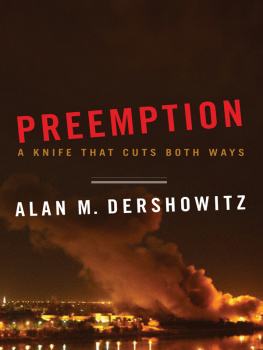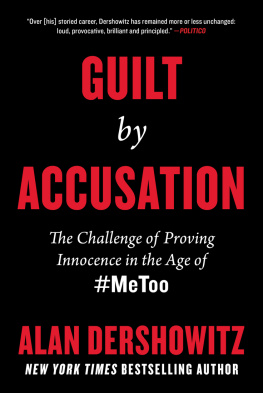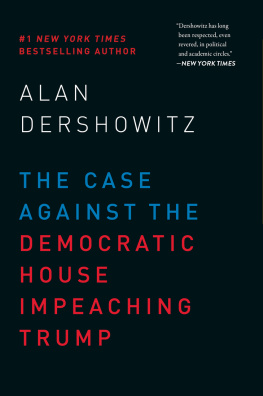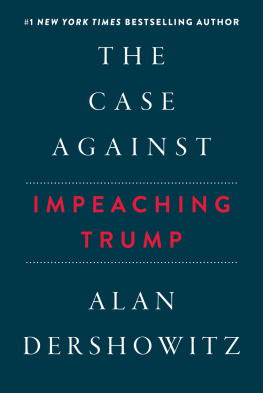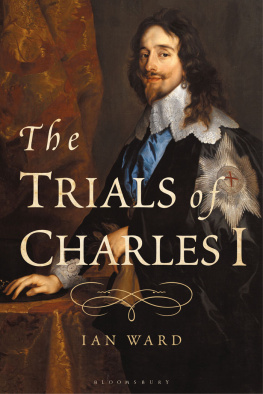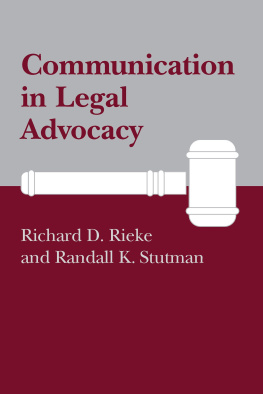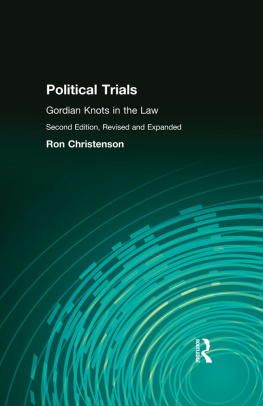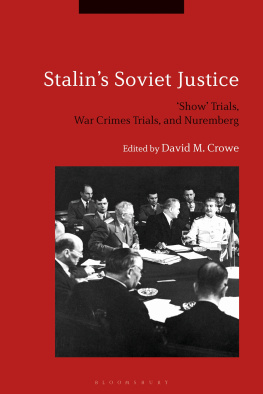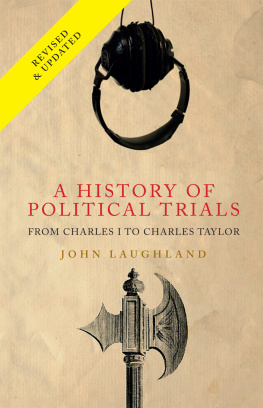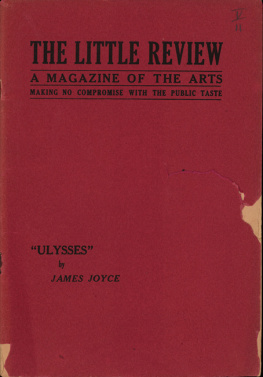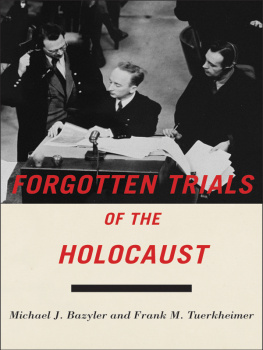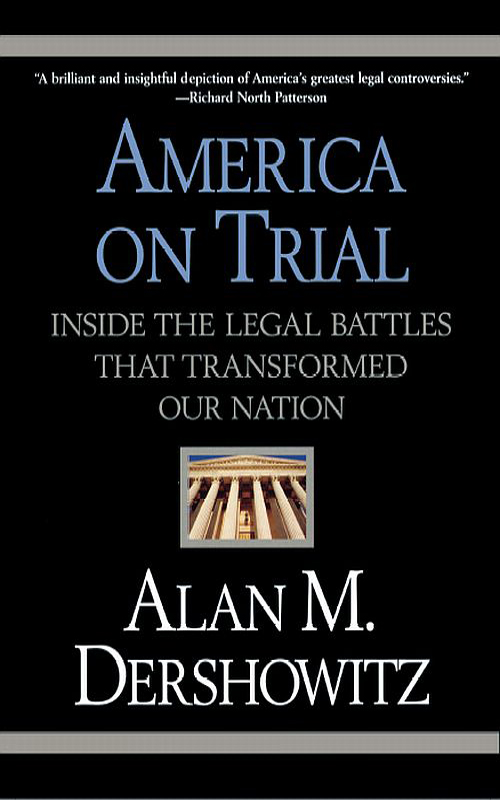PRAISE FOR
AMERICA ON TRIAL
Be entertained and enlightened by one of Americas foremost thinkersAlan Dershowitz is a national asset.
Richard North Patterson
In a book that covers every significant legal skirmish over many centuries, he is able to present compelling, controversial, but always interesting perspectives on our embattled legal system. Dershowitz goes behind the transcripts in the traditional arguments and is able to discover nuanced, critical, and important information that will allow judges, lawyers, members of legislature, and, more important, everyday citizens to appreciate the laws complexity, ambiguity, and, ultimately, celebrations. This is a book that has to be read if we are to understand the progress weve made in our legal system, and prepare for the many struggles that lie ahead as a nation in promoting the rule of law over the power of individuals.
Charles J. Ogletree, Jr., Jesse Climenko Professor of Law and author of All Deliberate Speed: Reflections on the First Half Century of Brown v. Board of Education
Out of Alan Dershowitzs intellectual cornucopia comes a cascade of bright ideas and intriguing revelations heretofore hidden or neglected in the formal language of court decisions.
Mario Cuomo
ALSO BY ALAN M. DERSHOWITZ
Psychoanalysis, Psychiatry, and Law
Criminal Law: Theory and Process
Best Defense
Reversal of Fortune
Taking Liberties
Chutzpah
Contrary to Popular Opinion
The Advocates Devil
The Abuse Excuse
Reasonable Doubts
The Vanishing American Jew
Sexual McCarthyism
Just Revenge
Genesis of Justice
Supreme Injustice
Letters to a Young Lawyer
Shouting Fire
Why Terrorism Works
America Declares Independence
The Case for Israel
Copyright 2004 by Alan M. Dershowitz
All rights reserved.
Warner Books
Hachette Book Group
237 Park Avenue
New York, NY 10017
Visit our website at www.HachetteBookGroup.com
First eBook Edition: October 2009
ISBN: 978-0-7595-1103-3
This book is lovingly dedicated to the first Dershowitz of the
twenty-first century, my great-niece Zara Columbia Dershowitz,
and to her parents, Adam and Hanna.
Although reading classic trial transcripts is a solitary activity, I could not have compiled this book without the assistance of many people. The students in my pass-fail seminar on great trials provided brilliant insights into the trials we studied together, as did my friends on Marthas Vineyard who participated in our great trials movie nights. Special thanks to my student research assistants who helped with the introductions to the various eras in American history. Most particularly my appreciation to: Karen Abravanel (the colonial and early U.S. period and the Nuremberg trials), Holly Beth Billington (European regicides and the 1980s through the present), Jacqueline Cohen (biblical foundations), Alex Gordon (pre-Civil War through Reconstruction periods), Kristy Greenberg (early twentieth century through the interwar period), Mark Sabath (World War II and Vietnam), and Pam Wasserstein (the Cold War and civil rights eras).
In addition to her excellent work on several introductions, Holly Beth Billington helped to organize and coordinate the research and the footnotes. She is a pleasure to work with and always gets the job done.
My assistant, Jane Wagner, provided her usual professional supervision and overall assistance.
Christine Valentine encouraged me to participate in Gryphons Notable Trials Series and provided excellent editorial assistance to the introductions I first wrote for that series.
My usual thanks to friends and family who encouraged me through this labor of love.
T he courtroom trial has fascinated human beings from the beginning of recorded history. It has long been a staple of literature, drama, even scripture. The trial also provides a unique window through which to glimpse the narrative of history. Virtually every historical epoch is personified by noteworthy trials. History has been viewed through the window of politics, personality, economics, religion, sociology, culture, art, and ideology. The trial, of course, provides a different vantage point. It generally represents a snapshot of individual litigants rather than a video or panorama of a society. Yet the trial can tell us a great deal about the passions, conflicts, and attitudes of the time, despitesometimes because ofits narrower focus. America on Trial is thus an episodic history of our nation viewed through the prism of our most dramatic and influential public court proceedings.
The trial is drama. Its outcome is often unpredictable. The jurors, in cases where ordinary citizens are chosen to determine the fate of their peers, are not subject to the control of government. They represent the man and woman on the street, and they return to the street after completing their important but singular task, without being accountable for their verdicts. The judge, whether appointed or elected, is supposed to be the embodiment of the law. Indeed, the traditional wig was designed to highlight the uniformity, rather than the individuality, of judges. Yet he is also a human being with biases, predispositions, and ambitions. The lawyers are the gladiators, facing off against each other in moral combat. And the litigants are central characters in a real-life drama that will determine their own future, and sometimes the future of many others.
In the historically significant trials of any era, more tends to be at stake than the lives, freedom, or fortunes of the litigants themselves. Great issues or events transcend the individual participants in the courtroom confrontation. Sometimes an important precedent is established. Other times, a prominent person or movement is made or broken. Often the verdict of history is determined, or influenced, by the verdict in the case, though sometimes the verdict of history and the outcome of the case may differ dramatically. Nearly always there is something about a memorable case that makes it somehow representative of the passions of its time. The most noteworthy of trials deal with enduring themes that transcend time and place. They reflect the human condition.
Because of the drama and often transcendent character of the trial, it should not be surprising that some of the most memorable trials have served as a basis for books, plays, and motion pictures. They have become part of the popular culture of the day, and on occasion part of the enduring culture of the ages. Sometimes the literary license taken with the actual facts results in a work of great fiction, such as The Brothers Karamazov by Dostoyevsky or An American Tragedy by Theodore Dreiser; sometimes in semifiction or docudrama, as In Cold Blood by Truman Capote, A Man for All Seasons by Robert Bolt, or Inherit the Wind by Jerome Lawrence and Robert E. Lee. On occasion, the trial that forms the basis of an influential work of literature can be entirely the product of the writers imagination, as in Kafkas The Trial and Harper Lees To Kill a Mockingbird.
In this book, I will present what I believe are among the most important trials in American history. I have selected cases (and occasionally Supreme Court appeals) that I believe are representative of the important eras in our history. Most tell us something about the struggles and passions of the times. Some provide insights into the human condition. Others are noteworthy simply because they involve famous, or infamous, people. They all tell us something about our nation and about ourselves.


